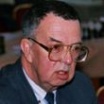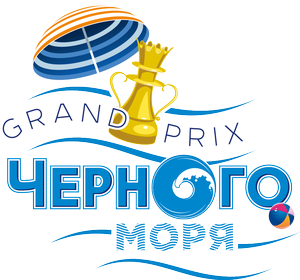Person of day - 22 JULY 2024
NIKOLAI KROGIUS

Nikolai was born in Saratov into a family of intellectuals; his father was an artist, his mother taught at Saratov University and his grandfather was a doctor of medicine. Krogius learned to play chess during the War, having traded a pocket chess set for a packet of cigarettes with a Red Army soldier who was passing thorough the city. Shortly after, the young man was presented with his first chess text book, which was edited by Efim Bogoljubov and which fascinated the boy intensely.
After the War, Krogius was taken under the wing of Nikolai Aratovsky, a celebrated trainer who prompted his pupil to make enormous strides: he became the junior national champion, a master of sport of the USSR and the champion of RSFSR. Nikolai Krogius always performed well for his team, leading Soviet teams to victories at the Spartakiad of Soviet Peoples and at the 1965 European championship. After exceptional performances at the 1963 and 1964 Chigorin Memorials, he became an international master, then a grandmaster.
Towards the end of the 1960s, Krogius became a trainer, helping Boris Spassky in the latter’s matches against Tigran Petrosian and Robert Fischer. Between 1970 and 1980, he worked in Saratov’s Chernyshevsky University, rising from a professor to head of the psychology faculty. Krogius studied the psychology of chess, devoting around 20 of his 150 books or articles to this matter. Soviet psychology particularly valued his Personality in Conflictand Psychology in Chess.
In 1981, Nikolai Krogius was appointed head of chess in the State Committee of Sport of the USSR and moved from Saratov to Moscow. He was part of a committee which reviewed applications for doctors’ dissertations of Moscow State University’s faculty of psychology. He was Vice-President of the Soviet chess federation from 1981-1990 and headed the chess faculty of the State Lenin University for Physical Culture from 1981-1981. He was also part of the editorial committee for the 64magazine and he was awarded a Medal of Honour for his achievements in chess in 1981.
In 1987, Krogius suffered a heart attack while working at the Central Chess Club. Colleagues flocked around him, unsure what to do. “Call Alek..only Bakh can save me…” he barely whispered.
After retiring due to ill-health, Nikolai Krogius performed wonderfully in several veterans’ world championships, losing one of them only on additional criteria to Mark Taimanov, who ended up winning. He headed Anatoly Karpov’s delegation in the last match against Garry Kasparov, in 1990.
He published a textbook on the endgame together with grandmaster Lev Alburt in 2000, which was recognised as the best chess book of the US in that year. Krogius’ memoirs, called “Chess. The Game and Life” werepublishedin2011. In 2014, Krogius also published Grandmasters’ Notes, in which he criticised several aspects of Soviet chess life, such as the matches between Karpov and Kasparov. He also published a two-volume book on Spassky.
Many colleagues of the grandmaster criticised his performance as the head of Soviet chess; for example, Mark Dvoretsky, a recognised trainer of the USSR, devoted multiple pages to this in his autobiographies and textbooks.
In 1998 Nikolai Krogius moved to the USA with his family. He and his wife Irina had two children and four grandchildren. In 2009, the Krogious' family received congratulations from the White House on their golden wedding.
A famous grandmaster died in New York on 14 July, 2022.























